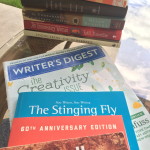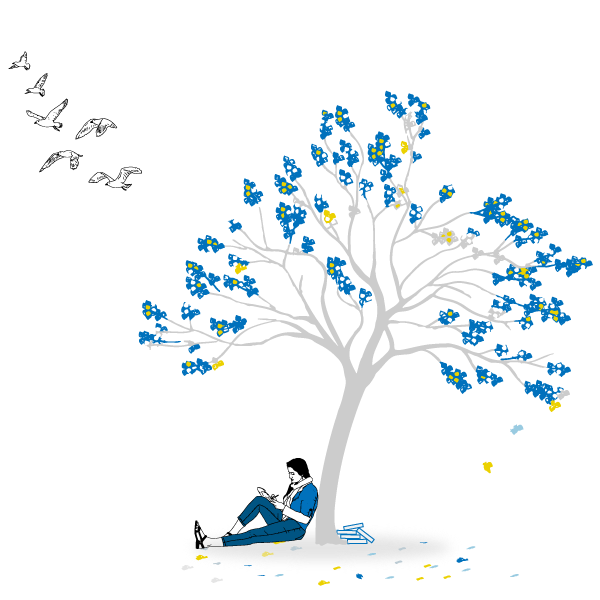Understanding California, thanks to Steinbeck
A year ago today I moved from New York City, my home—or the closest someone of my disposition gets to calling a place home—to California, where my family makes it a home for me. I captured that experience on a quasi Still Sunday here last year when I was between JFK and SFO.
A week prior to moving I submitted the collection of stories to be published because I thought I was “done.” I had no idea the work only begins when you think you are done. Nonetheless, today I am actually finished. Editing, more editing, and then some more. It just didn’t end. It was exhausting and I came close to giving up so many times, often because there was so much else that was going on since I have been in California. To be honest, one final attributions page still remains! It really shakes you up, the entire process. It is a humbling process too: your final, most polished draft still needed editing. It puts these blog posts in perspective.
I am coming out of it thinking, the best part about writing really is the writing itself. That being said, if I didn’t leave NYC for a year or two, if I didn’t grab life by the horns, I would have been trampled under life’s business-as-usual hooves. And I don’t think I would have ever been able to offer more than what I have been offering here. That is to say, living, really living, the times it feels like you have no time for living, is as necessary as writing itself and sometimes the living aspect looks like you are not producing anything.
Also, it has been living here for a bit, being knee-deep in the real California and not just visiting my family, that I have found a new understanding about literature as an art form.
I have been re-reading John Steinbeck.
This is from the scene when the Joads in Steinbeck’s Grapes of Wrath finally get to California:
And the man said, “You ain’t gonna get no steady work. Gonna scrabble for your dinner ever’ day. An’ you gonna do her with people lookin’ mean at you. Pick cotton, an’ you gonna be sure the scales ain’t honest. Some of ‘em is, an’ some of ‘em ain’t. But you gonna think all the scales is crooked, an’ you don’ know which ones. Ain’t nothin’ you can do about her anyways.”
Pa asked slowly, “Aint-ain’t it nice out there at all?”
“Sure, nice to look at, but you can’t have none of it. They’s a grove of yella oranges-an’ a guy with a gun that got the right to kill you if you touch one. They’s a fella, newspaper fella near the coast, got a million acres-”
Casy looked up quickly, “Million acres? What in the worl’ can he do with a million acres?”
“I dunno. He jus’ got it. Runs a few cattle. Got guards ever’place to keep folks out. Rides aroun’ in a bullet-proof car. I seen pitchers of him. Fat, sof’ fella with little mean eyes an’ a mouth like a ass-hole. Scairt he’s gonna die. Got a million acres an’ scairt of dyin’.”
There is a longer excerpt here. The chapter which begins, “Once California belonged to Mexico and its land to Mexicans.”
Being in California now, although many migrant farm workers are brought here as laborers for those who own the land, and some might even be “illegal”, but there are many who have been here for generations and consider Mexico a neighboring state. It is truly a complex situation in many ways.
Anyway, Steinbeck reported this complexity, the relationship of people wanting to possess the land against people trying to survive against all odds in this abundant land, with such swift mastery, that Grapes of Wrath was written in five months and went on to win many prestigious awards and remains an American classic. That was in 1939 and while he wrote it he gave us another gift, a journal he kept for the entire time he was working on Grapes of Wrath, now titled, Working Days: The Journal of The Grapes of Wrath, 1938-1941. Some research via the search engine www.duckduckgo.com (of course Google doesn’t provide many solid results anymore; easily accessible doesn’t translate to good quality!) led to a site that had an excerpt from it:
June 9: …This must be a good book. It simply must…
June 11: …My life isn’t very long and I must get one book written before it ends. The others have been make shifts, experiments, practices. For the first time I am working on a real book…
June 18: …I am assailed with my own ignorance and inability. Honesty. If I can keep an honesty to it… If I can do that it will be all my lack of genius can produce. For no one else knows my lack of ability the way I do. I am pushing against it all the time. Sometimes, I seem to do a good little piece of work, but when it is done it slides into mediocrity…
I first came upon Grapes of Wrath in 8th grade in Kansas and I didn’t finish it. I had read Steinbeck’s other works and thought I would enjoy it but I only finished half. Then it was junior year in high school and I was enrolled in an AP Honors English class (which I was almost failing because I was so bored trying to decode meaning out of literature as the teacher understood it from way back when she was taught in school, not even meaning she had derived from her own critical thinking) and we had to read it. I read it; I finished it. I didn’t understand why I didn’t take to it as much as his other novels but I didn’t think much more about it as I decided to do a required assignment on Faulkner instead. However, Grapes of Wrath did leave an impression on me to the extent it leaves an impression on anyone: it shocks you. Then I had to read it again in some college course and I was more taken with the quality of the writing. Every time it was presented as “historical fiction” or “realistic fiction” or “classic” and never how it relates to the current time.
A year in California and I have been dumping my pail of questions on anyone and everyone, trying to make sense of the way things are here, and everyone says the same thing, that’s just how things are. I have been compassionate, I have been confused. I have been angry, and I have felt hopeless given the state of this state. And then, one morning, around 4:00 a.m. I woke up thinking about Grapes of Wrath. Just like that, out of nowhere. I started reading and re-reading excerpts and then any and everything Steinbeck felt while writing it. After it was published it has been noted that he stated, “I’ve done my damndest to rip a reader’s nerves to rags.”
So, here I am, a year later in California, thinking about “there is a failure here that topples all our success” which was presented as fiction by a man in 1939 in the hopes that that reality wouldn’t be repeated. And yet has anything changed?
Yet somehow I feel better. Despite this knowing that nothing has changed or even if things have become worse, there exists an account, a most raw portrayal, of triumph of the human spirit against all odds. It’s still possible today.
Steinbeck knew exactly what he was doing even when he had doubts. Never underestimate the power of intentional creation as opposed to talent just oozing out ever so naturally.
Great Art—literature—lives dormant inside your lack-of-understanding until it bursts open like a parachute to save you from all that you can’t change. It helps you land on the ground from where you must try anyway.
I understand why it is mandatory reading in most competent high schools even if many people behind those decisions can’t remember reading it, nor teach it: art is an eternal exhale on the glass of Time.


“there is a failure here that topples all our success”
…and there is a success which topples all our failures.
I have a friend who just built a $5m home. Whenever I try to get hold of him he’s travelling somewhere (nowhere near the mansion)…
So there you go. Thanks to Steinbeck indeed!